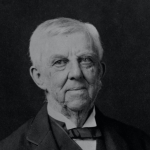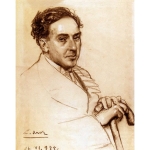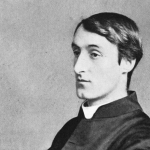God! How I hate you, you young cheerful men,
Whose pious poetry blossoms on your graves
As soon as you are in them, nurtured up
By the salt of your corruption, and the tears
Of mothers, local vicars, college deans,
And flanked by prefaces and photographs
From all you minor poet friends—the fools—
Who paint their sentimental elegies
Where sure, no angel treads; and, living, share
The dead’s brief immortality
Oh Christ!
To think that one could spread the ductile wax
Of his fluid youth to Oxford’s glowing fires
And take her seal so ill! Hark how one chants—
“Oh happy to have lived these epic days”—
“These epic days”! And he’d been to France,
And seen the trenches, glimpsed the huddled dead
In the periscope, hung in the rusting wire:
Chobed by their sickley fœtor, day and night
Blown down his throat: stumbled through ruined hearths,
Proved all that muddy brown monotony,
Where blood’s the only coloured thing. Perhaps
Had seen a man killed, a sentry shot at night,
Hunched as he fell, his feet on the firing-step,
His neck against the back slope of the trench,
And the rest doubled up between, his head
Smashed like and egg-shell, and the warm grey brain
Spattered all bloody on the parados:
Had flashed a torch on his face, and known his friend,
Shot, breathing hardly, in ten minutes—gone!
Yet still God’s in His heaven, all is right
In the best possible of worlds. The woe,
Even His scaled eyes must see, is partial, only
A seeming woe, we cannot understand.
god loves us, God looks down on this our strife
And smiles in pity, blows a pipe at times
And calls some warriors home. We do not die,
God would not let us, He is too “intense,”
Too “passionate,” a whole day sorrows He
Because a grass-blade dies. How rare life is!
On earth, the love and fellowship of men,
Men sternly banded: banded for what end?
Banded to maim and kill their fellow men—
For even Huns are men. In heaven above
A genial umpire, a good judge of sport,
Won’t let us hurt each other! Let’s rejoice
God keeps us faithful, pens us still in fold.
Ah, what a faith is ours (almost, it seems,
Large as a mustard-seed)—we trust and trust,
Nothing can shake us! Ah, how good God is
To suffer us to be born just now, when youth
That else would rust, can slake his blade in gore,
Where very God Himself does seem to walk
The bloody fields of Flanders He so loves!




















Comment form: